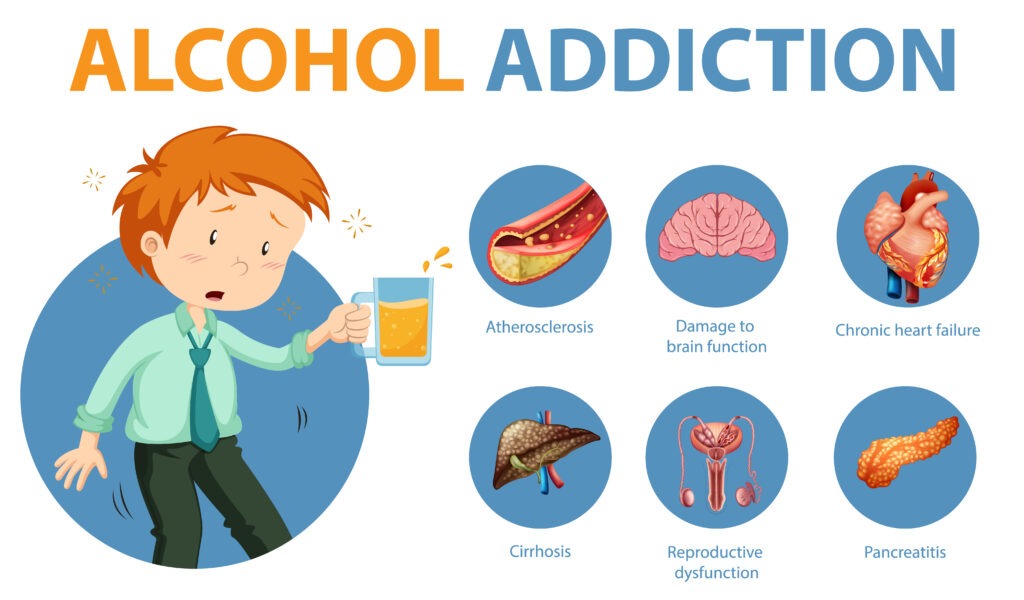
Apple cider vinegar is a popular natural remedy that has been used for various health purposes, including digestive issues. Pancreatitis is a condition that affects the pancreas, an organ that plays a crucial role in digestion. While there is limited research on the use of apple cider vinegar for pancreatitis, some studies suggest that it may have potential benefits.
- One of the primary benefits of apple cider vinegar for pancreatitis is its ability to improve digestion. Pancreatitis often causes symptoms such as abdominal pain, nausea, and vomiting, which can make it difficult to digest food properly. Apple cider vinegar contains acetic acid, which can help stimulate the production of digestive enzymes in the pancreas, aiding in the digestion process.
- Another way apple cider vinegar may benefit individuals with pancreatitis is by reducing inflammation in the pancreas. Chronic inflammation is a common characteristic of pancreatitis, and it can lead to further damage to the pancreas over time. Some studies have suggested that apple cider vinegar may help reduce inflammation in the body, including the pancreas, due to its antioxidant properties.
Moreover, apple cider vinegar may also help regulate blood sugar levels in individuals with pancreatitis. Pancreatitis can lead to complications such as diabetes due to damage to the cells that produce insulin in the pancreas. Apple cider vinegar has been shown to improve insulin sensitivity and reduce blood sugar levels, which may be beneficial for individuals with pancreatitis.
However, it is essential to note that while apple cider vinegar may have potential benefits for pancreatitis, it should not be used as a sole treatment for the condition. Pancreatitis is a serious condition that requires medical attention, and individuals should consult their healthcare provider before using apple cider vinegar as a supplement to their treatment plan.
In conclusion, apple cider vinegar may have potential benefits for individuals with pancreatitis, including improved digestion, reduced inflammation, and regulation of blood sugar levels. However, it should not be used as a substitute for medical treatment, and individuals should always consult their healthcare provider before incorporating apple cider vinegar into their diet or treatment plan.
Is apple cider vinegar good for pancreatitis?
Pancreatitis is a condition that affects the pancreas, causing inflammation and pain in the abdominal area. Apple cider vinegar is a popular home remedy that is believed to have numerous health benefits, including improving digestion and reducing inflammation. However, the question remains: Is apple cider vinegar good for pancreatitis? While there is limited research on the topic, some studies suggest that apple cider vinegar may have potential benefits for individuals with this condition.
One of the potential benefits of apple cider vinegar for pancreatitis is its ability to improve digestion. The acetic acid in apple cider vinegar may help stimulate the production of digestive enzymes in the pancreas, which can aid in the digestion process. This can be particularly helpful for individuals with pancreatitis, as the condition can cause digestive issues such as abdominal pain, nausea, and vomiting.
Another way that apple cider vinegar may benefit individuals with pancreatitis is by reducing inflammation in the pancreas. Chronic inflammation is a common characteristic of pancreatitis, and it can lead to further damage to the pancreas over time. Some studies have suggested that apple cider vinegar may have anti-inflammatory properties, which may help reduce inflammation in the body, including the pancreas.
Moreover, apple cider vinegar may also help regulate blood sugar levels in individuals with pancreatitis. The condition can lead to complications such as diabetes due to damage to the cells that produce insulin in the pancreas. Apple cider vinegar has been shown to improve insulin sensitivity and reduce blood sugar levels, which may be beneficial for individuals with pancreatitis.
However, it is important to note that while apple cider vinegar may have potential benefits for pancreatitis, it should not be used as a substitute for medical treatment. Pancreatitis is a serious condition that requires medical attention, and individuals should consult their healthcare provider before using apple cider vinegar as a supplement to their treatment plan.
In conclusion, while there is limited research on the topic, apple cider vinegar may have potential benefits for individuals with pancreatitis, including improved digestion, reduced inflammation, and regulation of blood sugar levels. However, it should not be used as a substitute for medical treatment, and individuals should always consult their healthcare provider before incorporating apple cider vinegar into their diet or treatment plan.
How to make apple cider vinegar at home

Apple cider vinegar is a popular natural remedy that has been used for various health purposes, including aiding digestion and reducing inflammation. While it is readily available at most grocery stores, some individuals prefer to make their own apple cider vinegar at home. Here is a simple guide on how to make apple cider vinegar at home, which can potentially benefit individuals with pancreatitis.
- Firstly, you will need to obtain apple cider or fresh apples. Apple cider vinegar is made from apple cider, which is essentially unfiltered apple juice. If you are unable to find apple cider, you can also make your own by juicing fresh apples and allowing the juice to ferment.
- Next, you will need to add a starter culture to the apple cider. This can be in the form of apple cider vinegar with the “mother” or a commercial starter culture. The starter culture contains the necessary bacteria to convert the sugars in the apple cider into acetic acid, the primary component of vinegar.
- Once the starter culture has been added, the mixture should be covered with a breathable cloth and left in a warm, dark place for several weeks to allow the fermentation process to occur. During this time, the bacteria will convert the sugars in the apple cider into acetic acid, which will give the mixture a tart taste and a strong odor.
- How else can apple cider vinegar improve your health?After several weeks, the apple cider vinegar should be ready. Strain the mixture through a cheesecloth or fine-mesh sieve to remove any solids, and transfer the liquid to a clean glass jar or bottle. The apple cider vinegar can then be stored at room temperature for several months or in the refrigerator for longer shelf life.
It is important to note that while apple cider vinegar may have potential benefits for individuals with pancreatitis, homemade apple cider vinegar may not be as reliable as commercially produced vinegar in terms of its quality and consistency. Therefore, it is recommended to use commercially produced apple cider vinegar for medical purposes and consult with a healthcare provider before incorporating it into your diet or treatment plan.
In conclusion, making apple cider vinegar at home is a simple process that can potentially benefit individuals with pancreatitis. While homemade apple cider vinegar may not be as reliable as commercially produced vinegar, it can be a fun and rewarding DIY project for those interested in natural remedies. As with any dietary supplement or treatment, it is important to consult with a healthcare provider before use.
How else can apple cider vinegar improve your health?
Apple cider vinegar is a versatile natural remedy that has been used for various health purposes for centuries. While its potential benefits for digestion, inflammation, and blood sugar regulation have been widely studied, there are also many other ways in which apple cider vinegar may improve your health.
Weight loss
One of the most popular uses of apple cider vinegar is for weight loss. Some studies suggest that the acetic acid in apple cider vinegar may help reduce appetite and increase feelings of fullness, which can lead to decreased calorie intake and weight loss over time. Additionally, apple cider vinegar may also improve insulin sensitivity, which can help regulate blood sugar levels and prevent weight gain.
Heart health
Apple cider vinegar may also have potential benefits for heart health. Some studies have suggested that consuming vinegar regularly may lower cholesterol levels and reduce the risk of heart disease. This may be due to the acetic acid in vinegar, which has been shown to improve lipid metabolism and reduce oxidative stress.
Infections
Moreover, apple cider vinegar may also have antimicrobial properties that can help fight off infections. It has been shown to have antibacterial and antifungal effects, which can help prevent the growth of harmful bacteria and fungi in the body. This may be particularly beneficial for individuals with compromised immune systems, as well as those who are prone to frequent infections.
Skin health
Additionally, apple cider vinegar may also have potential benefits for skin health. Its antibacterial and antifungal properties may help prevent acne and other skin infections, while its acidic properties may help exfoliate and brighten the skin. Some people also use apple cider vinegar as a natural hair rinse to improve hair health and shine.
While apple cider vinegar may have potential benefits for many aspects of health, it is important to note that excessive consumption can also have negative effects, such as tooth enamel erosion and digestive issues. Therefore, it is recommended to consume apple cider vinegar in moderation and consult with a healthcare provider before incorporating it into your diet or treatment plan.
In conclusion, apple cider vinegar is a versatile natural remedy that may have potential benefits for various aspects of health, including weight loss, heart health, infection prevention, and skin health. As with any dietary supplement or treatment, it is important to use apple cider vinegar in moderation and consult with a healthcare provider before use.
How to prevent pancreatitis from happening

Pancreatitis is a condition in which the pancreas becomes inflamed and can cause severe pain, digestive issues, and other complications. While some risk factors, such as genetics and certain medical conditions, cannot be controlled, there are several steps individuals can take to prevent pancreatitis from happening.
Alcohol
One of the most important ways to prevent pancreatitis is to avoid excessive alcohol consumption. Chronic alcohol use is one of the leading causes of pancreatitis, and reducing or eliminating alcohol intake can significantly reduce the risk of developing the condition. Additionally, avoiding binge drinking and seeking help for alcohol addiction can also help prevent pancreatitis and other alcohol-related health issues.
Healthy diet
Maintaining a healthy diet and weight is also crucial for preventing pancreatitis. Eating a diet rich in fruits, vegetables, lean proteins, and healthy fats can help prevent inflammation and other issues that can contribute to pancreatitis. Additionally, avoiding processed foods, high-fat foods, and sugary drinks can help reduce the risk of developing the condition. Incorporating apple cider vinegar into your diet can also potentially benefit individuals with pancreatitis as it has been shown to aid digestion and reduce inflammation.
Avoiding certain medications and toxins
Avoiding certain medications and toxins can also help prevent pancreatitis. Some medications, such as certain antibiotics and blood pressure medications, can cause pancreatitis as a side effect. Additionally, exposure to certain toxins, such as pesticides and industrial chemicals, can also increase the risk of developing the condition. Therefore, it is important to discuss any potential risks with a healthcare provider and take necessary precautions to avoid exposure to toxins.
Managing diabetes
Managing underlying medical conditions, such as diabetes and high cholesterol, can also help prevent pancreatitis. These conditions can contribute to inflammation and other issues that can increase the risk of developing the condition. Therefore, it is important to work with a healthcare provider to manage these conditions and prevent complications.
In conclusion, preventing pancreatitis requires a combination of lifestyle changes and medical management. Avoiding excessive alcohol consumption, maintaining a healthy diet and weight, avoiding certain medications and toxins, and managing underlying medical conditions are all crucial steps in preventing pancreatitis. Incorporating apple cider vinegar into your diet may also potentially benefit individuals with pancreatitis. If you suspect you may be at risk for pancreatitis, it is important to consult with a healthcare provider for guidance and management.
FAQs
- Q: Can apple cider vinegar help with pancreatitis?
A: While some studies have suggested that apple cider vinegar may have potential benefits for digestion and inflammation, there is no clear evidence that it can specifically help with pancreatitis. It is important to consult with a healthcare provider for guidance and treatment options.
- Q: Is apple cider vinegar safe for individuals with pancreatitis?
A: It depends on the individual and their specific condition. While apple cider vinegar may be safe for some individuals with pancreatitis, it can also aggravate symptoms and cause digestive issues in others. It is recommended to consult with a healthcare provider before incorporating apple cider vinegar into your diet.
- Q: What are some common causes of pancreatitis?
A: The most common causes of pancreatitis include excessive alcohol consumption, gallstones, high triglyceride levels, and certain medications or medical conditions. Other less common causes include infections, trauma, and genetic factors.
- Q: What are some common symptoms of pancreatitis?
A: Common symptoms of pancreatitis include severe abdominal pain, nausea, vomiting, fever, and rapid heartbeat. In more severe cases, complications such as organ failure and respiratory distress may also occur.
- Q: How is pancreatitis diagnosed?
A: Pancreatitis is typically diagnosed through a combination of medical history, physical examination, and diagnostic tests such as blood tests, imaging studies, and endoscopic procedures. A healthcare provider will determine the most appropriate tests based on the individual’s symptoms and medical history.
- Q: What are some common treatments for pancreatitis?
A: Treatment for pancreatitis typically involves addressing the underlying cause, managing symptoms, and preventing complications. This may include lifestyle changes such as avoiding alcohol and maintaining a healthy diet, medications for pain relief and inflammation, and in more severe cases, hospitalization and surgery.
In conclusion, apple cider vinegar may have potential benefits for various aspects of health, but it is important to consult with a healthcare provider before incorporating it into your diet, especially if you have pancreatitis. Understanding the common causes, symptoms, and treatments for pancreatitis can also help individuals prevent and manage the condition effectively.
Conclusion
In conclusion, while there is some evidence to suggest that apple cider vinegar may have potential benefits for digestion and inflammation, there is no clear evidence that it can specifically help with pancreatitis. It is important to consult with a healthcare provider before incorporating apple cider vinegar into your diet, especially if you have pancreatitis or any other medical condition.
Preventing pancreatitis requires a combination of lifestyle changes and medical management, including avoiding excessive alcohol consumption, maintaining a healthy diet and weight, avoiding certain medications and toxins, and managing underlying medical conditions. Incorporating apple cider vinegar into your diet may also potentially benefit individuals with pancreatitis, but it is important to discuss this with a healthcare provider before making any changes.
Common causes of pancreatitis include excessive alcohol consumption, gallstones, high triglyceride levels, and certain medications or medical conditions. Recognizing the symptoms of pancreatitis and seeking prompt medical attention is important for effective treatment and prevention of complications.
Treatment for pancreatitis typically involves addressing the underlying cause, managing symptoms, and preventing complications. This may include lifestyle changes such as avoiding alcohol and maintaining a healthy diet, medications for pain relief and inflammation, and in more severe cases, hospitalization and surgery.
In summary, while apple cider vinegar may have potential benefits for various aspects of health, it is important to approach it with caution and consult with a healthcare provider before incorporating it into your diet. Preventing pancreatitis involves making healthy lifestyle choices and managing underlying medical conditions, and seeking prompt medical attention for symptoms is crucial for effective treatment and prevention of complications.